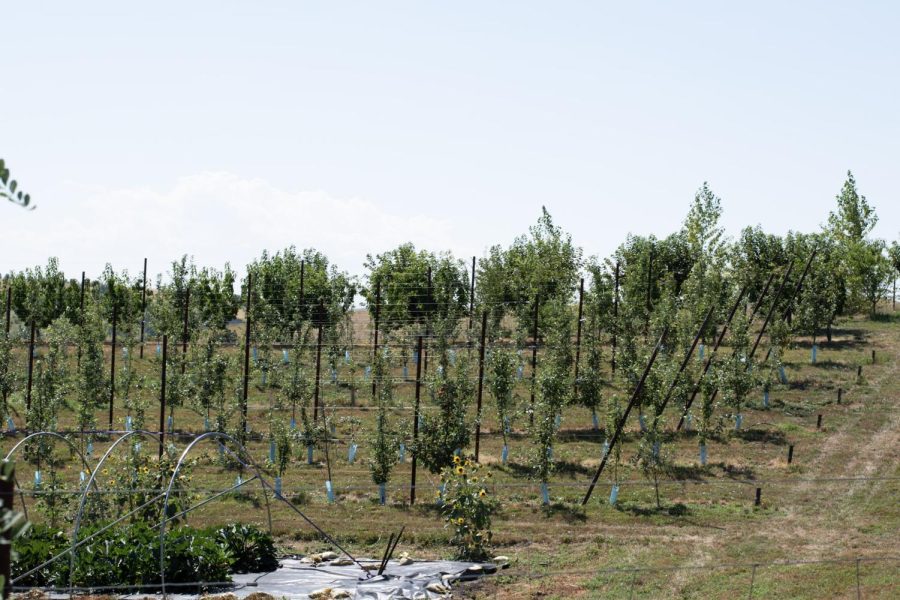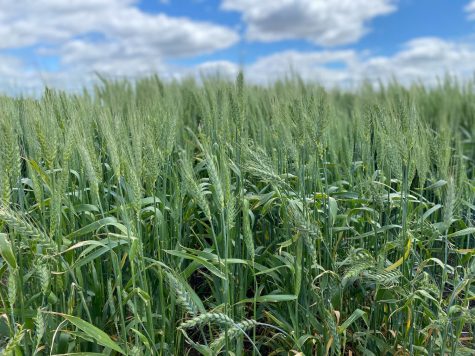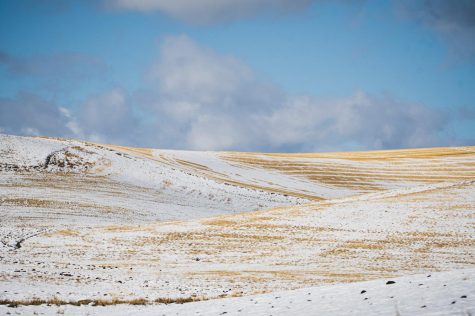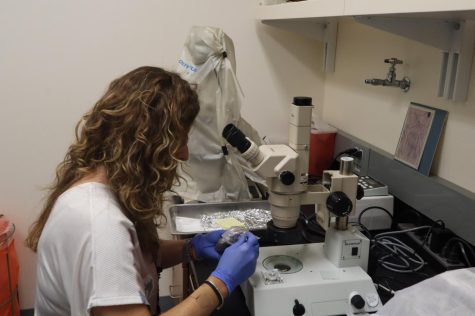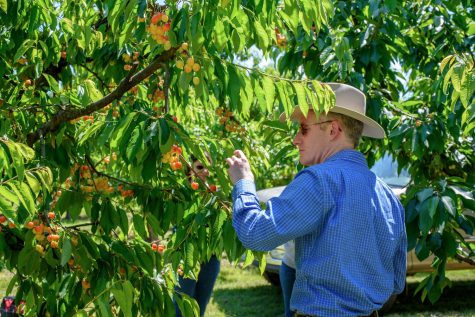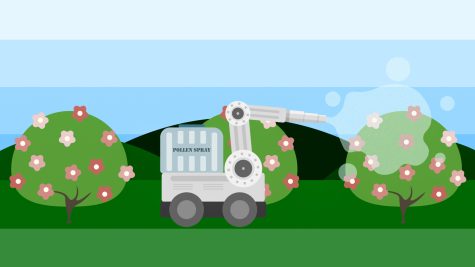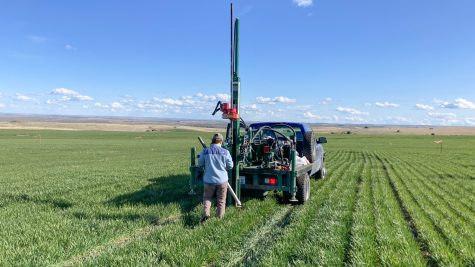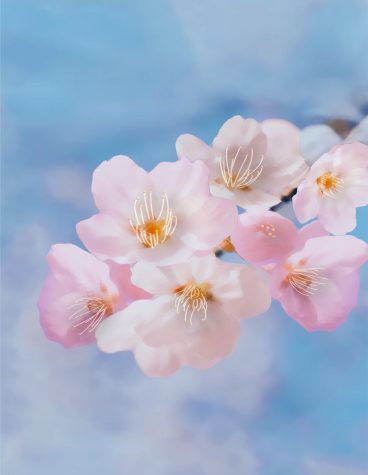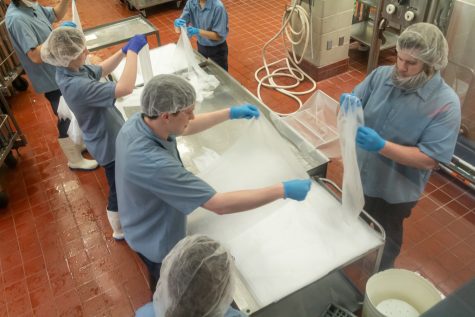High temperatures affect local producers
Heat causes crops to wilt, burn without irrigation tactics
“[The heat] really has an effect on how much we have available to meet orders every week.”
August 25, 2022
With rising temperatures in Pullman and Moscow, producers are unable to sell some varieties of their crops.
At the WSU Eggert Family Organic Farm lettuce was affected by the heat, said Brad Jaeckel, WSU Eggert Family Organic Farm manager. When lettuce is exposed to heat stress, the outer edges of the leaf burn, and it is no longer a sellable crop.
The farm’s tomatoes and cucumbers, which are grown in a plastic-covered house, were also impacted due to high temperatures. The flowers on the crop wilt when they are exposed to a high temperature, causing them to lose part of their lifecycle, Jaeckel said.
“We have had multiple days in the high 90s” he said. “Those are the days that have the most effect.”
The hottest prolonged stretch occurred toward the end of July when the temperature increased into 90s, said Greg Koch, weather forecaster for the National Service Spokane. Throughout August, the average temperature in Pullman has been 0.7 degrees warmer than in 2021.
Kochw said the temperature will continue to increase through early September.
“It does not look like above-average temperatures are [ceasing] coming anytime soon,” he said. “There is evidence that the second half of September has the potential to trend closer to average.”
Jaeckel said farms’ crop issues will persist if temperatures remain high, but this will not affect the produce his farm provides to the Cougar Food Pantry.
“[The heat] really has an effect on how much we have available to meet orders every week,” he said. “That has not been an issue to [the Cougar Pantry]. The pantry is one of our smaller accounts, so we are able to keep them supplied or bigger accounts like the Moscow Food Co-op.”
In summer 2021, the smoke from the wildfires created a cloud cover, which protected plants from the intense sunlight. This year, the skies were clear with no cloud cover, Jaeckel said.
“That does make a difference, [as] having that cloud cover sometimes just protects the plants more from the intense sunshine,” he said. “We had long periods of hotter weather, so we are not seeing the same effect that we did last year.”
There are a few techniques farmers can use to protect their plants from heat, Jaeckel said. One method is irrigation, ensuring plants have enough water. Another method is providing shade to crops sensitive to overheating, which reduces sun exposure.

